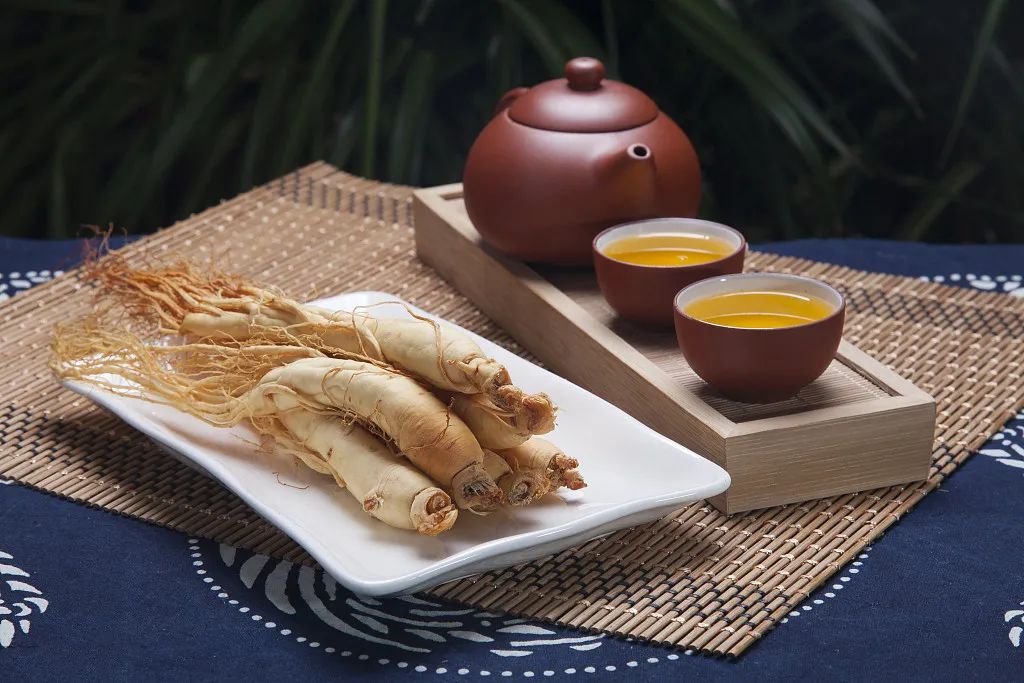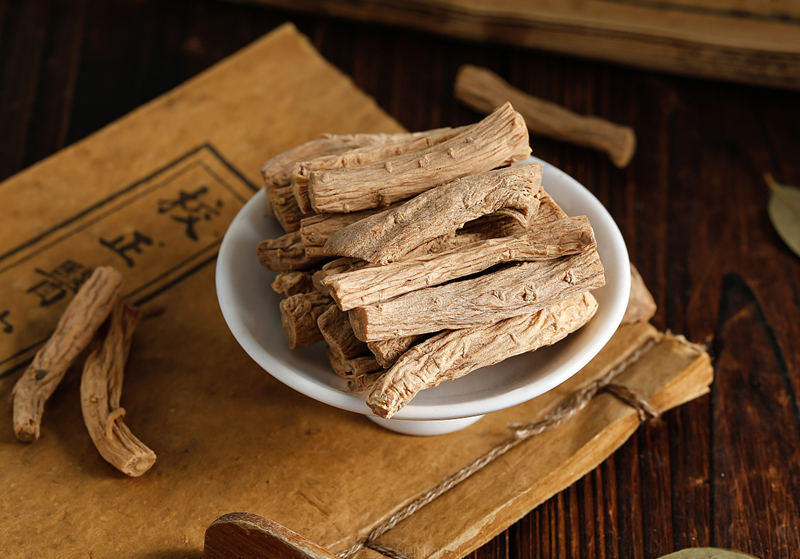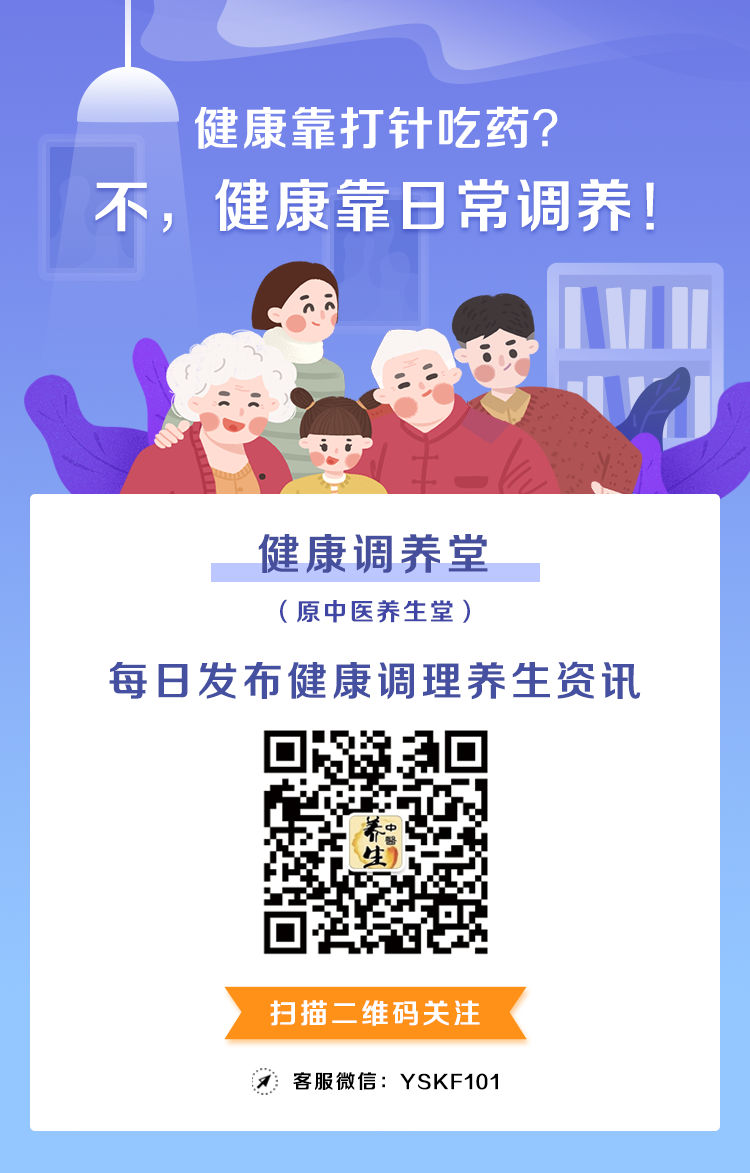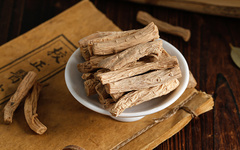
When it comes to Ren Shen (Ginseng), everyone is likely quite familiar with it. However, the question arises: are Ren Shen and Dang Shen (Codonopsis) the same? Some people believe that the character “党” in Dang Shen refers to the Shanxi region of Shangdang, and thus think that Dang Shen is a type of ginseng produced in Shangdang.If you think this way, you are mistaken. In fact, Dang Shen and Ren Shen are two different species. Dang Shen is the dried root of the plant Codonopsis pilosula, while Ren Shen is the dried root of the plant Panax ginseng, with cultivated varieties referred to as “园参” (Yuan Shen) and wild varieties as “山参” (Shan Shen).
 Ren Shen
Ren Shen

 It has a sweet and slightly bitter flavor, and is neutral in nature. It enters the Spleen, Lung, and Heart meridians. It has the effects of greatly tonifying vital Qi, restoring collapsed Qi, benefiting the Spleen and Lung, generating fluids, and calming the spirit. It is used to treat conditions such as extreme deficiency of vital Qi leading to collapse, cold limbs with weak pulse, Spleen deficiency with poor appetite, Lung deficiency with cough and wheezing, fluid damage with thirst, internal heat with diabetes, prolonged illness leading to weakness, palpitations and insomnia, impotence with cold uterus, heart failure, and cardiogenic shock. The dosage for decoction is 3-9g, and it can also be decocted and added to soups. For wild ginseng, if powdered and taken, the dosage is 2g, twice a day. The effects of Ren Shen are actually more extensive compared to Dang Shen.1. Greatly tonifies vital Qi and restores collapsed Qi, which can treat conditions of extreme deficiency of vital Qi leading to collapse.This effect is what people commonly understand as the life-saving ability of Ren Shen in critical moments. This includes severe illness, prolonged illness, significant vomiting and diarrhea, and massive blood loss, all of which can lead to the depletion of vital Qi, resulting in critical conditions with weak pulse. In such cases, Ren Shen can be used alone in decoction, known as Du Shen Tang (Ginseng Decoction). For treating extreme collapse of vital Qi or sudden bleeding leading to rapid loss of Yang Qi, presenting with profuse sweating, shortness of breath, and weak pulse, it can be combined with Fu Zi (Aconite). Ren Shen can also be combined with Yin-nourishing herbs to treat conditions of both Qi and Yin deficiency.2. Benefits the Spleen and Lung, treating Spleen and Lung Qi deficiency.Spleen Qi deficiency includes symptoms such as Spleen not transporting, fatigue, poor appetite, and loose stools; Middle Qi sinking with insufficient breath, and organ prolapse; Spleen Qi deficiency leading to abnormal blood regulation, resulting in prolonged bleeding; and Spleen Qi deficiency causing insufficient Qi to produce blood, leading to both Qi and blood deficiency. Lung Qi deficiency includes symptoms such as cough and wheezing, excessive phlegm, and deficiency of both Lung and Kidney leading to breathlessness. These conditions can all be treated with Ren Shen combined with other Spleen Qi tonifying and Lung Qi benefiting herbs.3. Generates fluids and nourishes blood, treating heat disease with Qi deficiency and fluid damage leading to thirst and diabetes.Ren Shen combined with Shi Gao (Gypsum) and Zhi Mu (Anemarrhena) can clear heat and generate fluids for conditions of heat disease with damage to both Qi and fluids. Combined with Mai Dong (Ophiopogon), Sha Shen (Glehnia), and Tian Hua Fen (Trichosanthes), it can treat diabetes with concurrent Qi deficiency.4. Nourishes blood and calms the spirit, benefiting the intellect.It treats palpitations, insomnia, and forgetfulness caused by Qi deficiency, combined with Suan Zao Ren (Sour Jujube Seed) and Bai Zi Ren (Platycladus Seed), such as in Tian Wang Bu Xin Dan (Heavenly Emperor’s Heart-Supplementing Pill).5. OthersRen Shen can also be used to treat impotence and cold uterus caused by Kidney Yang deficiency, often combined with Yang tonifying herbs such as Lu Rong (Deer Antler).
It has a sweet and slightly bitter flavor, and is neutral in nature. It enters the Spleen, Lung, and Heart meridians. It has the effects of greatly tonifying vital Qi, restoring collapsed Qi, benefiting the Spleen and Lung, generating fluids, and calming the spirit. It is used to treat conditions such as extreme deficiency of vital Qi leading to collapse, cold limbs with weak pulse, Spleen deficiency with poor appetite, Lung deficiency with cough and wheezing, fluid damage with thirst, internal heat with diabetes, prolonged illness leading to weakness, palpitations and insomnia, impotence with cold uterus, heart failure, and cardiogenic shock. The dosage for decoction is 3-9g, and it can also be decocted and added to soups. For wild ginseng, if powdered and taken, the dosage is 2g, twice a day. The effects of Ren Shen are actually more extensive compared to Dang Shen.1. Greatly tonifies vital Qi and restores collapsed Qi, which can treat conditions of extreme deficiency of vital Qi leading to collapse.This effect is what people commonly understand as the life-saving ability of Ren Shen in critical moments. This includes severe illness, prolonged illness, significant vomiting and diarrhea, and massive blood loss, all of which can lead to the depletion of vital Qi, resulting in critical conditions with weak pulse. In such cases, Ren Shen can be used alone in decoction, known as Du Shen Tang (Ginseng Decoction). For treating extreme collapse of vital Qi or sudden bleeding leading to rapid loss of Yang Qi, presenting with profuse sweating, shortness of breath, and weak pulse, it can be combined with Fu Zi (Aconite). Ren Shen can also be combined with Yin-nourishing herbs to treat conditions of both Qi and Yin deficiency.2. Benefits the Spleen and Lung, treating Spleen and Lung Qi deficiency.Spleen Qi deficiency includes symptoms such as Spleen not transporting, fatigue, poor appetite, and loose stools; Middle Qi sinking with insufficient breath, and organ prolapse; Spleen Qi deficiency leading to abnormal blood regulation, resulting in prolonged bleeding; and Spleen Qi deficiency causing insufficient Qi to produce blood, leading to both Qi and blood deficiency. Lung Qi deficiency includes symptoms such as cough and wheezing, excessive phlegm, and deficiency of both Lung and Kidney leading to breathlessness. These conditions can all be treated with Ren Shen combined with other Spleen Qi tonifying and Lung Qi benefiting herbs.3. Generates fluids and nourishes blood, treating heat disease with Qi deficiency and fluid damage leading to thirst and diabetes.Ren Shen combined with Shi Gao (Gypsum) and Zhi Mu (Anemarrhena) can clear heat and generate fluids for conditions of heat disease with damage to both Qi and fluids. Combined with Mai Dong (Ophiopogon), Sha Shen (Glehnia), and Tian Hua Fen (Trichosanthes), it can treat diabetes with concurrent Qi deficiency.4. Nourishes blood and calms the spirit, benefiting the intellect.It treats palpitations, insomnia, and forgetfulness caused by Qi deficiency, combined with Suan Zao Ren (Sour Jujube Seed) and Bai Zi Ren (Platycladus Seed), such as in Tian Wang Bu Xin Dan (Heavenly Emperor’s Heart-Supplementing Pill).5. OthersRen Shen can also be used to treat impotence and cold uterus caused by Kidney Yang deficiency, often combined with Yang tonifying herbs such as Lu Rong (Deer Antler).
 Dang Shen
Dang Shen
 It has a sweet flavor and is neutral in nature. It enters the Spleen and Lung meridians. It has the effects of tonifying the Middle and benefiting Qi, strengthening the Spleen and Lung. It is used to treat Spleen and Lung weakness, shortness of breath, palpitations, poor appetite, loose stools, and deficiency cough and wheezing, as well as internal heat leading to diabetes. The dosage for decoction is 9-30g.
It has a sweet flavor and is neutral in nature. It enters the Spleen and Lung meridians. It has the effects of tonifying the Middle and benefiting Qi, strengthening the Spleen and Lung. It is used to treat Spleen and Lung weakness, shortness of breath, palpitations, poor appetite, loose stools, and deficiency cough and wheezing, as well as internal heat leading to diabetes. The dosage for decoction is 9-30g. Around the late Ming and early Qing dynasties, ginseng was heavily harvested in the Shanxi region, leading to the destruction of vegetation and a depletion of ginseng resources. People hoped to find a substitute for ginseng, and in the same area where ginseng was produced, today’s Wutai Mountain in Shanxi, at that time known as Luzhou, which is the Shangdang we are familiar with, they discovered a medicinal herb with effects very similar to ginseng, which was later named Dang Shen after its place of origin. Therefore, the use of Dang Shen began in the Ming dynasty. However, the effects of Dang Shen are not as extensive as those of Ren Shen.1. Benefits the Spleen and Lung.This primarily treats Spleen Qi deficiency, including symptoms such as Spleen not transporting, fatigue, poor appetite, and loose stools; Lung Qi deficiency leading to cough and shortness of breath, with weak voice. The former can be combined with Bai Zhu (Atractylodes) and Fu Ling (Poria) to tonify Qi and strengthen the Spleen, while the latter can be combined with Huang Qi (Astragalus) and Ge Jie (Gecko) to tonify Lung Qi.2. Nourishes blood and generates fluids.
Around the late Ming and early Qing dynasties, ginseng was heavily harvested in the Shanxi region, leading to the destruction of vegetation and a depletion of ginseng resources. People hoped to find a substitute for ginseng, and in the same area where ginseng was produced, today’s Wutai Mountain in Shanxi, at that time known as Luzhou, which is the Shangdang we are familiar with, they discovered a medicinal herb with effects very similar to ginseng, which was later named Dang Shen after its place of origin. Therefore, the use of Dang Shen began in the Ming dynasty. However, the effects of Dang Shen are not as extensive as those of Ren Shen.1. Benefits the Spleen and Lung.This primarily treats Spleen Qi deficiency, including symptoms such as Spleen not transporting, fatigue, poor appetite, and loose stools; Lung Qi deficiency leading to cough and shortness of breath, with weak voice. The former can be combined with Bai Zhu (Atractylodes) and Fu Ling (Poria) to tonify Qi and strengthen the Spleen, while the latter can be combined with Huang Qi (Astragalus) and Ge Jie (Gecko) to tonify Lung Qi.2. Nourishes blood and generates fluids.
This primarily treats mild cases of Qi and fluid damage and conditions of both Qi and blood deficiency. The former can be combined with Mai Dong (Ophiopogon) and Wu Wei Zi (Schisandra) to nourish Yin and generate fluids. The latter can be combined with Bai Zhu and Dang Gui (Angelica) to enhance the blood tonifying effects of Dang Shen. In this regard, its effects are very similar to those of Ren Shen.


